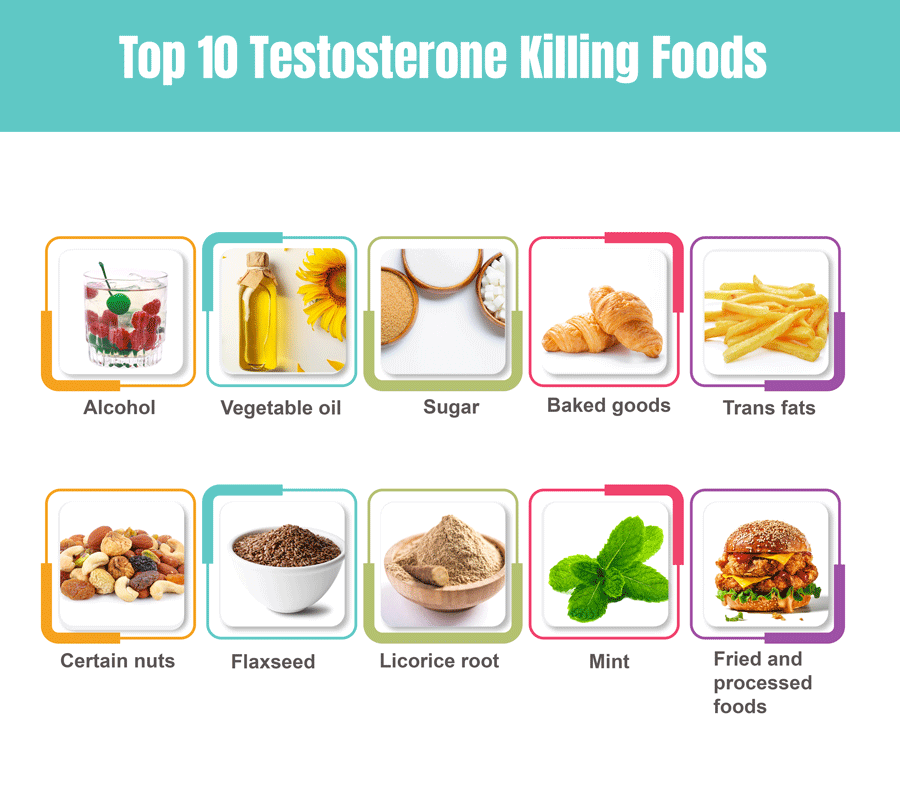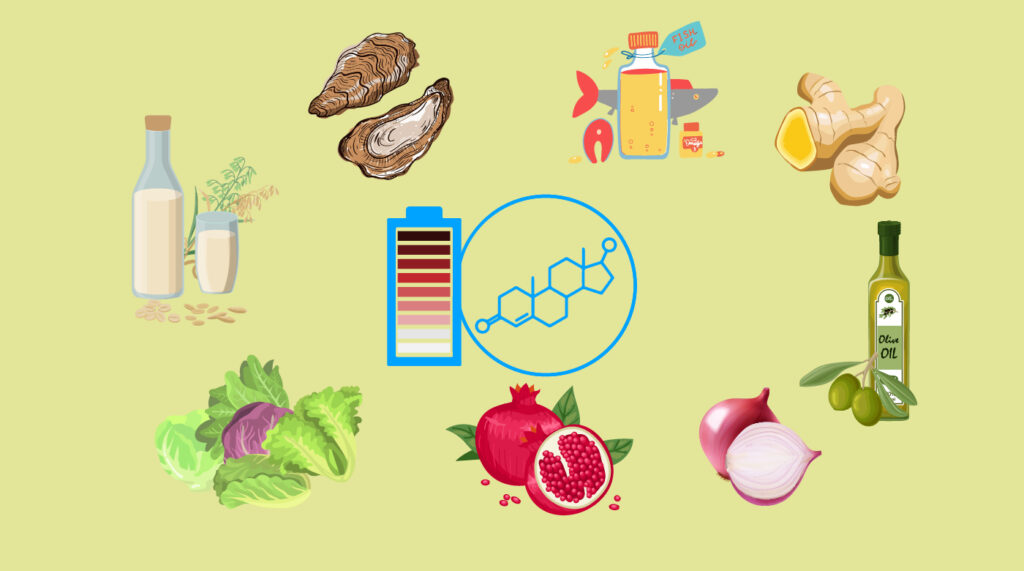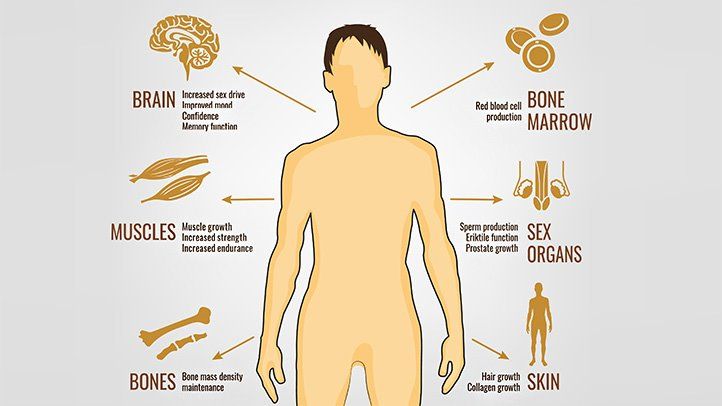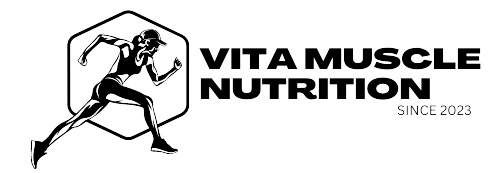In today’s fast-paced world, health and wellbeing are at the top of our priority list. Testosterone levels are one component of health that many people, particularly males, place a premium on. Testosterone, also known as the “male hormone,” is important in many parts of our lives, including muscle growth, bone density, mood management, and even desire. Unfortunately, a variety of variables, including lifestyle and nutritional habits, can contribute to low testosterone levels.
This detailed guide will go into the realm of testosterone and the concept of “Testosterone Lowering Foods.” We will look at what testosterone is, why it is important, and, most importantly, which foods may be affecting your testosterone levels. Furthermore, we will share practical ideas and nutritional recommendations to assist you naturally enhance your testosterone levels and avoid testosterone lowering foods.

The Importance of Testosterone
Before we start looking for testosterone lowering foods, let’s first grasp the importance of testosterone in our bodies.
What is testosterone?
Testosterone is a sex hormone found in both males and females, albeit it is more plentiful in men. It is largely produced in men’s testes and, to a lesser extent, in women’s ovaries. This hormone is important in a variety of physiological functions, including:
- Muscle Mass and Strength: Testosterone is a crucial driver of muscle growth and maintenance, making it essential for physical fitness and general strength.
- Bone Density: It helps to create and maintain strong bones, lowering the risk of osteoporosis.
- Libido and Sexual Function: Testosterone influences sexual desire and is required for good sexual function.
- Mood Regulation: It affects mood stability, energy levels, and overall mental health.
- Metabolism: Testosterone has the ability to change fat distribution and metabolism, hence influencing body composition.
Maintaining adequate testosterone levels is critical for general well-being due to its varied role. Now, let’s look more closely at the items that may be compromising this important hormone and try to avoid testosterone lowering foods to get more of it.
Identifying Testosterone Lowering Foods
Our hormone levels, especially testosterone, can be significantly influenced by the foods we eat. It is critical to understand which meals may have a detrimental impact on testosterone production or regulation. Here are some of the main testosterone lowering foods:

- Refined carbohydrates and high-sugar foods: Excessive consumption of sugary foods and refined carbs can cause insulin resistance, which can inhibit testosterone production. To keep blood sugar levels constant, eat whole grains, fruits, and vegetables.
- Alcoholic beverages: Excessive alcohol consumption can impede the liver’s ability to metabolize estrogen, resulting in estrogen dominance and reduced testosterone levels. When it comes to alcohol drinking, moderation is essential.
- Products Made from Soy: Soy includes phytoestrogens, which mimic estrogen in the body. Consumption of soy-based products in excess might result in hormonal abnormalities and perhaps reduce testosterone levels.
- Processed Foods: Trans fats, which have been related to reduce testosterone levels, are commonly found in processed meals. It is critical to avoid processed foods in favor of a diet rich in whole, unprocessed foods.
- Flaxseeds: Lignans, which contain estrogen-like effects, are abundant in flaxseeds. While they provide health benefits, excessive consumption may alter hormonal balance.
- Mint: Mint, including spearmint and peppermint, has been proven to have anti-androgenic characteristics, with regular use potentially lowering testosterone levels.
- Licorice Root: Licorice root includes chemicals that can block the enzyme responsible for testosterone breakdown. Licorice use may result in increased estrogen levels and decreased testosterone.
- Foods High in Sodium: A high-sodium diet can raise blood pressure, which can have a negative impact on testosterone levels. It is best to limit your sodium intake for overall wellness.
The Testosterone-Boosting Diet
Let’s look at a diet that promotes healthy testosterone levels now that we’ve discovered the testosterone lowering foods.

- Foods High in Protein: Include lean protein sources like poultry, fish, and lean meat, as well as plant-based options like beans and tofu. Protein is necessary for muscle growth and repair, and it is also important for maintaining appropriate testosterone levels.
- Healthy Fats: Include healthy fats in your diet, such as avocados, nuts, seeds, and olive oil. These lipids are required for the creation of hormones such as testosterone.
- Zinc-Rich Foods: Zinc is an essential mineral for the creation of testosterone. Zinc-rich foods include oysters, red meat, poultry, and pumpkin seeds.
- Vitamin D: Make sure you receive enough vitamin D from natural sources such as sunlight, fatty fish, and fortified dairy products. Low testosterone levels have been linked to vitamin D insufficiency.
- Cruciferous Veggies: Broccoli, cauliflower, cabbage, and Brussels sprouts contain estrogen-regulating chemicals that may indirectly support healthy testosterone levels.
- Limit Alcohol and Sugar: When it comes to alcohol and sugar, moderation is crucial. These compounds can be reduced or eliminated from your diet to assist maintain hormonal balance.
- Stay Hydrated: Hydration is critical for general health and hormone production. Make sure to stay hydrated throughout the day.
Lifestyle Factors
When it comes to maintaining healthy testosterone levels, diet is only one piece of the problem. A variety of lifestyle factors might also have an impact on your hormone balance:
- Exercise Regularly: Resistance training and aerobic exercise can both increase testosterone levels. Strive for a well-rounded fitness regimen.
- Manage Stress: Chronic stress can cause cortisol levels to rise, which can decrease testosterone synthesis. Incorporate stress-reduction practices into your everyday routine, such as meditation and deep breathing.
- Get Quality Sleep: Each night, aim for 7-9 hours of quality sleep. Sleep is when your body regulates and repairs its hormones.
- Keep a Healthy Weight: Obesity and being overweight can also lead to hormone abnormalities. Getting and keeping a healthy weight through diet and exercise can boost testosterone levels.
Tracking Your Progress
Maintaining appropriate testosterone levels is a continuous process, and it is critical to track your progress. Consider the following procedures:
- Routine Blood Tests: Consult your doctor and schedule regular blood tests to monitor your hormone levels, especially testosterone.
- Maintain a Food Journal: Keep track of your dietary intake and any changes in energy, mood, or physical performance.
- Listen to Your Body: Take note of how your body reacts to dietary and lifestyle changes. Continue on your current route if you observe favorable changes. If not, reconsider your strategy.

Final Thoughts
Identifying and eliminating testosterone lowering foods is an important step in maintaining normal testosterone levels and overall well-being. Testosterone, also known as the “male hormone,” influences everything from muscular growth and bone density to mood and sexual function in our bodies.
We’ve delved into the significance of testosterone throughout this thorough guide, identified foods that may negatively effect its production, and provided practical recommendations to help you establish a diet and lifestyle that supports healthy testosterone levels.
You can reduce probable factors that may affect your testosterone levels by decreasing or eliminating high-sugar foods, refined carbs, excessive alcohol, soy-based goods, processed foods, flaxseeds, mint, and licorice root from your diet. Adopting a testosterone-boosting diet high in protein, healthy fats, zinc, vitamin D, and cruciferous vegetables, on the other hand, can help to maintain hormonal balance and improve general health.
Dietary choices, however, are only one component of the puzzle. Regular exercise, stress management, quality sleep, and keeping a healthy weight are all important in improving testosterone levels and general health.
Remember that reaching and maintaining optimal testosterone levels is a lifelong journey, and individual reactions to dietary and lifestyle modifications may differ. It is critical to track your progress, meet with a healthcare specialist on a regular basis for hormone level tests, and pay attention to your body’s signals.
To summarize, while there is no secret method to instantly increase testosterone levels, making informed choices about your nutrition and lifestyle can considerably improve your general health and well-being. Breaking the code to recognizing and avoiding testosterone lowering foods is the first step toward realizing your full potential and living a vigorous, healthy life.
FAQs (Frequently Asked Questions)
- What exactly are testosterone lowering foods, and why should I be concerned?
Testosterone lowering meals are ones that can impair your body’s ability to create or control testosterone, a vital hormone with a variety of health benefits. These foods can cause hormonal imbalances, which can have an impact on muscle mass, bone density, mood, and sexual function. It is critical to be aware of them in order to preserve good health and well-being. - Which foods should I avoid to prevent lower testosterone levels?
Sugar, refined carbs, alcohol, soy-based goods, processed meals, flaxseeds, mint, and licorice root are all items to avoid. When ingested in excess, these substances can alter hormonal balance and potentially reduce testosterone levels. - What foods can I include in my diet to help maintain healthy testosterone levels?
Consider adding protein-rich foods like lean meats and legumes, healthy fats like avocados and nuts, zinc-rich foods like oysters and pumpkin seeds, and vitamin D sources like fatty fish and sunlight exposure to your diet to maintain healthy testosterone levels. Furthermore, cruciferous vegetables such as broccoli and cabbage can indirectly help manage estrogen levels, encouraging testosterone balance. - Can lifestyle choices affect testosterone levels?
Yes, lifestyle factors do have an impact on testosterone levels. Regular exercise, stress management strategies, adequate sleep, and a healthy weight are all necessary for optimizing testosterone levels and general health. - How can I track my success in maintaining normal testosterone levels?
You can track your progress by having regular blood tests with your doctor to assess your hormone levels, especially testosterone. Keeping a food journal to document nutritional consumption and keep track of changes in energy levels, mood, or physical performance can also be beneficial. Finally, paying attention to your body’s reactions to food and lifestyle changes is critical for determining whether your efforts are yielding favorable results.

